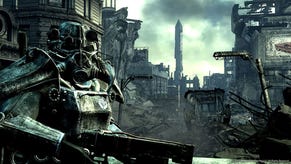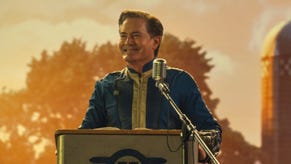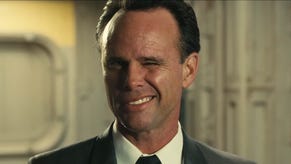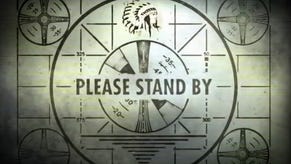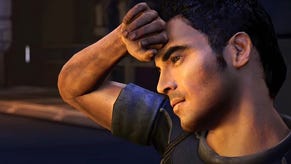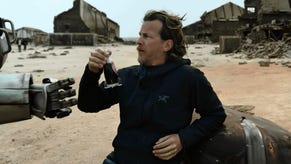Pete Hines on Fallout 3
Exploring Pete Hines' expanded conversation options.
With Fallout 3, we're probably approaching the end of the stage where the game is just demoed to journalists. The content is almost there, leaving the gargantuan task of making it all work properly ahead of Bethesda. Close as we are, though, we're not there yet, and while we long to actually play the bloody thing, there's still much to talk about. Bethesda's enthusiastic vice president of public relations and marketing, Pete Hines, sits back after his latest demonstration of Fallout 3 and asks if we have any questions. Yip.
It's like, if George Lucas died tomorrow - God willing, he doesn't - and you're a film director. And you've grown up making big epic films - maybe you're Peter Jackson. And he finishes whatever his big next film is. And someone asks him, "what do you want to do next?" And he says, "I always wanted to make a big space movie. A big epic movie full of action." And they ask, "do you want to do generic space movie that you make up yourself, or do you want to do Star Wars." And he says, "I could do whatever, but I grew up as a kid and Star Wars made me want to get into making movies. It had such a profound impact on me, I would love to pick up this thing I loved and cared so much about and make the next one. And I'm not the guy who did the originals, but it means so much to me, and would mean much more to me to work in this world. It would be easier, perhaps less controversial and less pressure to do my own, but I'd rather do this thing that someone else did so much more."
That's the best analogy I can use. We could have made anything and people would have been interested in it, probably, but Fallout meant a ton to us, and we love the tone and flavour of that world, and how meaningful it was for its time, how different it was from other stuff that was out there. We said, "we could do anything, but what we'd really love to do is Fallout". Use that character system and that world that's so unique from anything else that we might come up with. We'd rather do that than come up with our own thing. Bring that to life - and bring it not to just people who played the it before, but people who've never got to play or experience it. There's this great game and world which somebody came up that we really think you'll want to play.
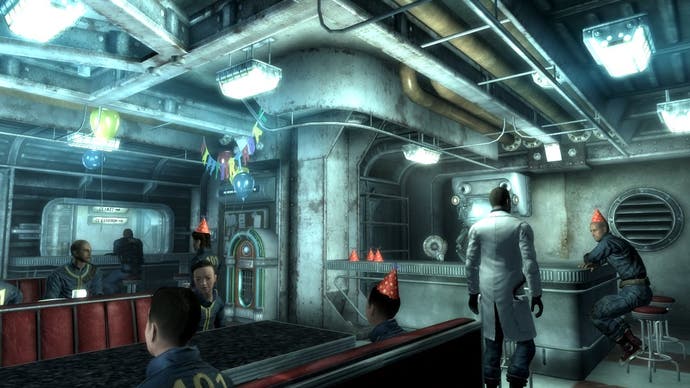
I don't know whether they miss it or not - it may be that they don't care and think, "that's all well and good, but you're not the ones we wanted to make this". I don't pretend to know exactly what their motivations and thought processes are. Those guys are very enthusiastic - we're talking about the very hardest of the hardcore Fallout fan. They're very passionate about this thing and protective about it. And that's okay. It's something they've clearly got a lot of attachment too. At the same time, we are making the very best game that we can. It's not for any one group of folk - we're making the best game we know how for a lot of people who'll come to play and enjoy it.
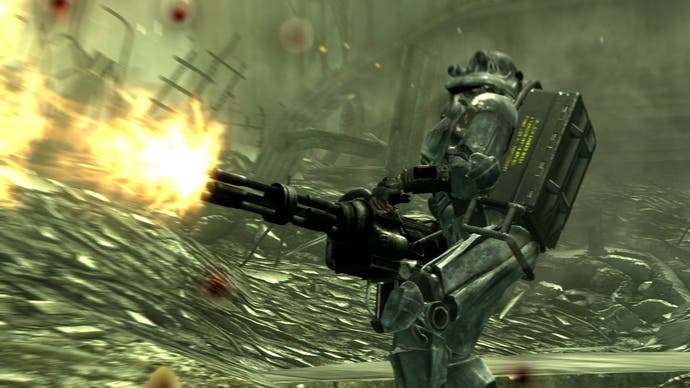
You never blank it out. You take all the feedback from Oblivion, and all the feedback from what people want from a Fallout game. And what you find is there's never agreement on anything from anyone. We get feedback from people who say you've got to have this. As long as you've got the SPECIALs [the game's statistics - Ed] and perks, that's Fallout. And some people say if it's not isometric and not turn-based, it's not Fallout. So you basically go and look at what made the game meaningful for them, and try as much as you can to match it with what you're doing, so you're doing what people remember and is important to them. But it's more of getting a vibe of what they want, rather than sitting in an art meeting and going, "What do we want this creature to look like... let's go and ask the fans". At some point we have seventy-five people making the game, devoting 3-4 years of their life and they're ultimately the tie-breakers. And it's not as if all seventy-five people think the same thing. We have big rows over should something work like X and Y or Z. And eventually a decision gets made, and we move forward with it. It's the same with feedback from outside the company - we take it all into account, but at some point you have to pick and direction and move on.

